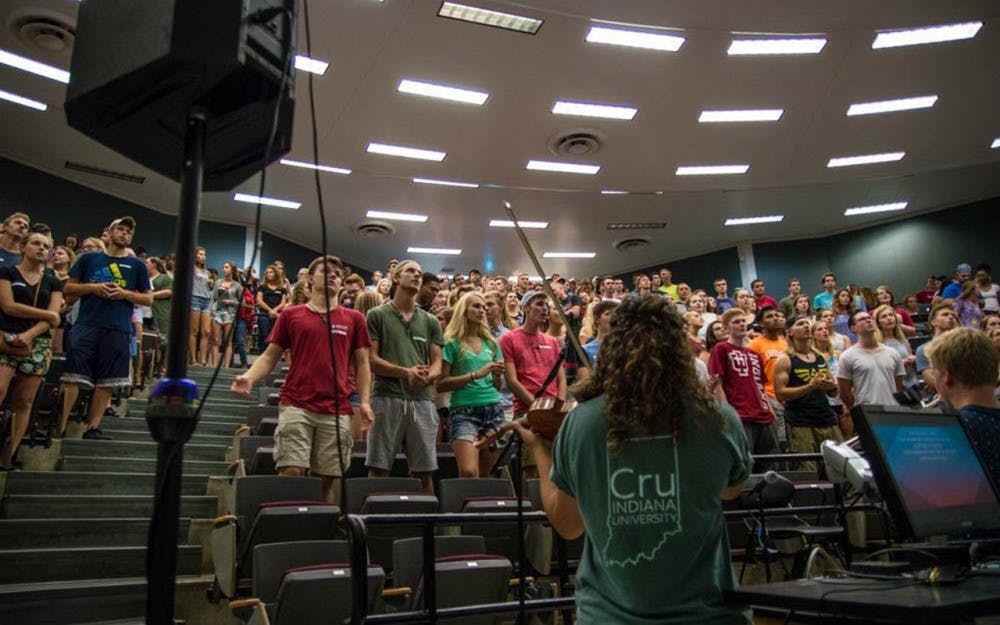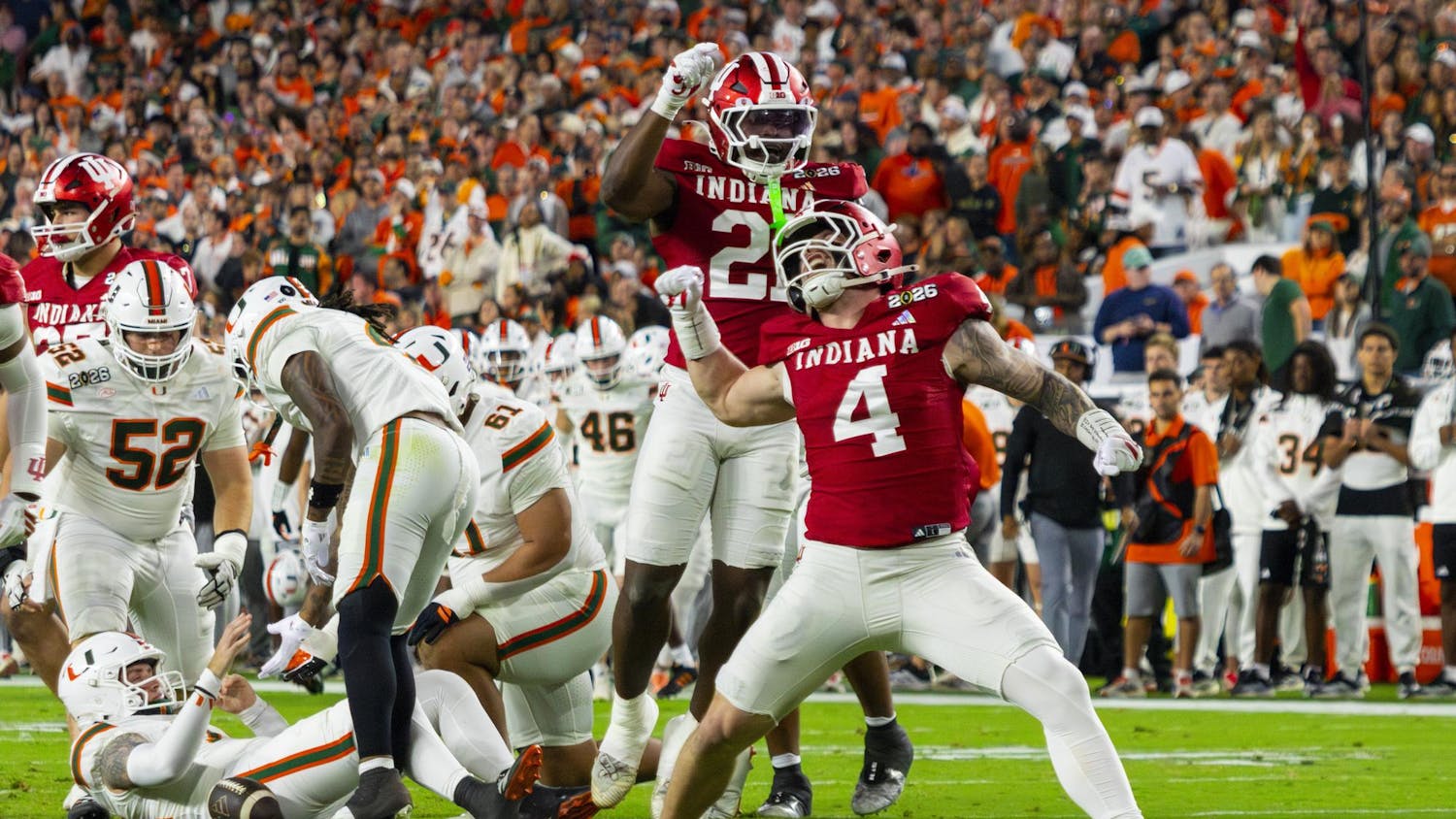A knee-length skirt is Hannah Iskow’s choice of dress for class every day. As a Jewish person, she said she tries to embody Judaism in her outlook on life, her day-to-day activities and her dress.
“More so when I’ve gotten to college, I don’t wear tight clothing and try not to wear tight shirts,” Iskow said. “I am very cognizant. It’s funny who notices and who doesn’t.”
To continue her practice on campus, Iskow became the student board president of Aish, a campus Jewish organization.
Aish is one of more than 50 religious and spiritual groups at IU. In these groups students can practice their faiths while away from home and have the ability to explore others.
“It’s a Jewish resource for students and faculty on campus,” Iskow said. “It connects Jewish students to Judaism in whatever way possible.”
Aish offers weekly Friday night Shabbat dinners, helps students participate in birthright trips to Israel and other other places abroad, and is often host to social events. Iskow was introduced to the organization by a friend.
“I was a little intimidated, but, once I started going, I couldn’t stop,” Iskow said. “I kind of live there.”
Iskow said she faced challenges with her faith at IU. She was the only Jewish student living in the INSPIRE Living Learning Center, which is a center designed for creating a diverse enviroment, her freshman year.
“I was the Jewish friend, and I didn’t like that at first,” Iskow said.
However, as she became more involved with the Jewish community at IU, she became comfortable answering people’s questions about her faith, she said. Her faith has only grown since she has come.
There are two other Jewish centers on campus — the Hillel Center and Chabad House. Iskow said she frequents all three, but Aish is more centered on growth and learningabout Judaism.
“It’s a very close-knit, tight community and also very welcoming,” Iskow said. “On a large campus a with large community it’s one of those places you walk into and feel at home.”
A sense of community and connections with other people of the same faith is also something that drew Sam Kane to Cru, a interdenominational Christian group on campus.
Kane said he grew up in a strong Christian environment, but, as a freshman, he was not interested in joining a Christian group right away.
“I wanted to see what life was like outside a small Christian community,” Kane said.
However, Kane said he felt like he wasn’t making a strong connection with people on campus. He said most of the conversations he had with students in his dorm were superficial.
One night his brother, a Cru member, invited him to go on a midnight swim at the Cutouts with some other Cru members.
“They asked me personal questions,” Kane said. “They wanted to get to know me.”
Three years later Kane, now a senior, is the president of Cru.
Cru has weekly meetings where 200 to 300 people come to talk about issues relevant to college life, living out faith and worship. Cru also has Bible studies in residence halls in each of IU’s three residential neighborhoods.
“IU is such a big place,” Kane said. “Even someone on two ends of a dorm have massively different upbringings.”
He said especially at any secular school, like IU, the current is going against Christians. However, he said being firm in belief can keep students connected to their faith, he said.
“Plant your feet, and go in the direction you want,” Kane said. “For me, it’s opposition that will make you a lot stronger, whatever your beliefs.”
In the past, Cru has worked with organizations like the Secular Alliance to start conversations for people with different viewpoints.
IU’s Secular Alliance provides a community for people who live without religion. It offers weekly discussion meetings, opportunities for activism and support.
Religous studies professor Candy Brown, in her 11 years teaching at IU, said she has seen a growing number of students identify as spiritual not religious. However, religious devotion is different for each individual, Brown said.
“It’s an age when young adults are making their own decisions,” Brown said. “For some it means a closer commitment and owning their faith for themselves, and for others it’s a time for exploration.”
Despite more students identifying as spiritual not religious, faith still plays a role for many students on campus.
“When you look for something comforting or something more stable, faith is what you cling to,” Iskow said.






